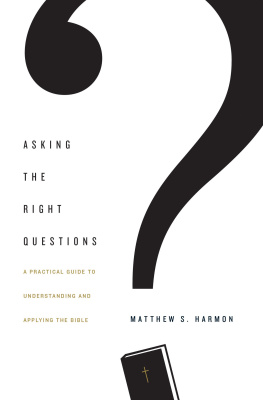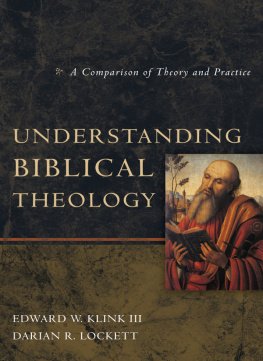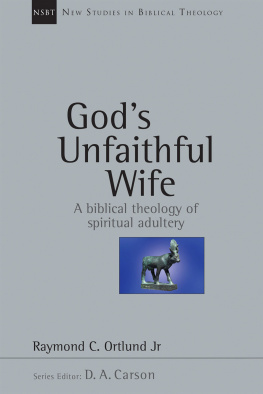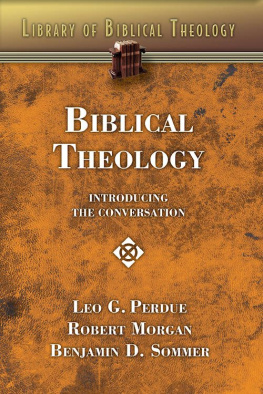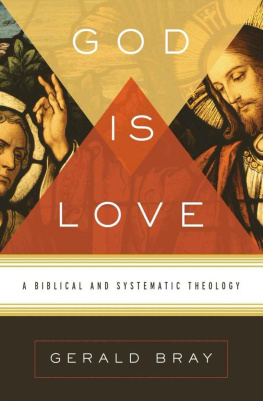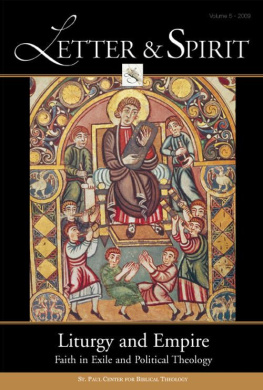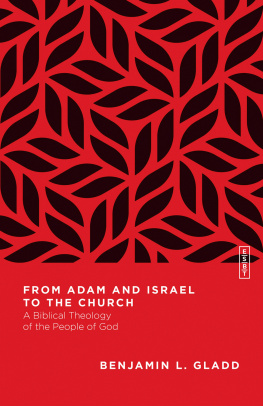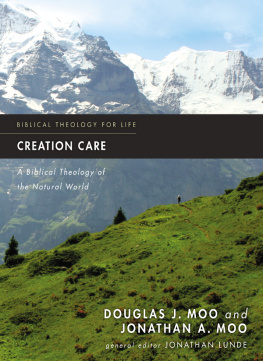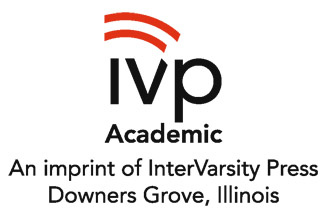Sommaire
Pagination de l'dition papier
Guide
REBELS AND
EXILES
A Biblical Theology
of Sin and Restoration
MATTHEW S. HARMON
InterVarsity Press
P.O. Box 1400, Downers Grove, IL 60515-1426
ivpress.com
2020 by Matthew Scott Harmon
All rights reserved. No part of this book may be reproduced in any form without written permission from InterVarsity Press.
InterVarsity Press is the book-publishing division of InterVarsity Christian Fellowship/USA, a movement of students and faculty active on campus at hundreds of universities, colleges, and schools of nursing in the United States of America, and a member movement of the International Fellowship of Evangelical Students. For information about local and regional activities, visit intervarsity.org.
Scripture quotations, unless otherwise noted, are from The Holy Bible, English Standard Version, copyright 2001 by Crossway Bibles, a division of Good News Publishers. Used by permission. All rights reserved.
The publisher can't verify the accuracy of website hyperlinks beyond the date of print publication.
Cover design and image composite: Bradley Joiner
Images: geometric pattern: kovalto1 / iStock / Getty Images Plus
ISBN 978-0-8308-4382-4 (digital)
ISBN 978-0-8308-5541-4 (print)
This digital document has been produced by Nord Compo.
To Jesus, who bore my curse upon the tree.
SERIES PREFACE
BENJAMIN L. GLADD
THE ESSENTIAL STUDIES IN BIBLICAL THEOLOGY is patterned after the highly esteemed series New Studies in Biblical Theology, edited by D. A. Carson. Like the NSBT, this series is devoted to unpacking the various strands of biblical theology. The field of biblical theology has grown exponentially in recent years, showing no sign of abating. At the heart of biblical theology is the unfolding nature of Gods plan of redemption as set forth in the Bible.
With an influx of so many books on biblical theology, why generate yet another series? A few reasons. The ESBT is dedicated to the fundamental or essential broad themes of the grand story line of the Bible. Stated succinctly, the goal of the ESBT series is to explore the central biblical-theological themes of the Bible. Several existing series on biblical theology are generally openended, whereas the ESBT will be limited to ten or so volumes. By restricting the entire series, the scope of the project is established from the beginning. The ESBT project functions as a whole in that each theme is intentional, and each volume does not stand solely on its own merits. The individual volumes interlock with one another and, taken together, form a complete and cohesive unit.
Another unique dimension of the series is a robust emphasis on biblical theology, spanning the entire sweep of the history of redemption. Each volume traces a particular theme throughout the Bible, from Genesis 13 to Revelation 2122, and is organically connected to the person of Christ and the church in the New Testament. To avoid a flat biblical theology, these projects are mindful of how the New Testament develops their topic in fresh or unexpected ways. For example, the New Testament sheds new light on the nature of the kingdom and messiah. Though these twin themes are rooted and explored in the Old Testament, both flow through the person of Christ in unique ways. Biblical theology should include how Old Testament themes are held in continuity and discontinuity with the New Testament.
The audience of the series includes beginning students of theology, church leaders, and laypeople. The ESBT is intended to be an accessible introduction to core biblical-theological themes of the Bible. This series is not designed to overturn every biblical-theological rock and investigate the finer details of biblical passages. Each volume is intentionally brief, serving as a primer of sorts that introduces the reader to a particular theme. These works also attempt to apply their respective biblical-theological themes to Christian living, ministry, and worldview. Good biblical theology warms the heart and motivates us to grow in our knowledge and adoration of the triune God.
AUTHORS PREFACE
AT FIRST GLANCE , writing a book on sin and exile may not sound like the most exciting topic one could explore. I will admit that when I began this project I shared a similar concern. But the more I explored how this theme is developed from Genesis to Revelation, the more I began to see the remarkable mercy and grace of God. I also began to see how Scripture speaks to the deep sense of longing I have for the new heavens and the new earth that consummates Gods redemptive plan. And I was once again awestruck at the unity and diversity of Scripture as it tells the one true story of the world that makes ultimate sense of every other story.
There are a variety of approaches one could take in exploring the biblical-theological theme of sin and exile. My goal is to trace out this theme from Genesis to Revelation, paying attention to how the Bible itself presents and develops this theme. Thus, I have limited my engagement with what other scholars have written on the subject and have restricted what engagement there is to the footnotes. For those interested in pursuing this theme further, there is a brief list of suggested readings at the end of the book with a short description to help orient you.
Writing a book is a team effort, even when there is only one author. This book would not exist without the help of others, and it is my delight to highlight just a few of the people who have had a role in the process. My love for Gods Word began shortly after my conversion at age thirteen, and it has been fueled by various pastors, teachers, and professors along the way. There are too many of them to mention by name, but I am especially grateful for the influence of Doug Moo and Greg Beale while I was a doctoral student at Wheaton College. Each in their own way has shaped my approach to the Bible, and those who are familiar with their works will likely find traces of their influence in these pages.
I wrote this book at the invitation of Ben Gladd, the editor of this series. We became good friends during my time as a doctoral student at Wheaton, and that friendship has continued to grow over the years despite the many miles that separate us. That friendship led us to coauthor Making All Things New: Inaugurated Eschatology for the Life of the Church (Baker, 2016), so I was thrilled when he asked me to contribute to this new series of biblical theology books. His friendship is an especially kind expression of Gods grace in my life.
Books do not see the light of day without publishers and editors, so I am grateful for the many people at InterVarsity Press who have played their part in the process. Anna Gissing deserves special mention for her very helpful comments and suggestions in the editorial process. Her sharp eye and keen mind have made this a better book.


